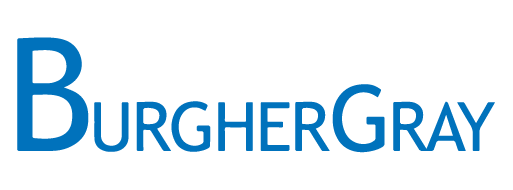SEC provides conditional relief in crowdfunding offerings to small companies affected by COVID-19
May 27, 2020

On Monday, May 4, 2020, the U.S. Securities and Exchange Commission (SEC) issued additional temporary relief to address urgent funding needs of businesses affected by COVID-19-related disruption. In recent weeks, the agency issued reliefs to address issues pertinent to public companies and investment firms. The latest relief is intended to address the challenges encountered by smaller companies seeking to meet their capital needs through a Regulation Crowdfunding offering (Reg CF).
The temporary relief amends certain existing crowdfunding requirements and provides conditional relief to expedite the timing of the offerings under Regulation Crowdfunding. The temporary relief is available only to existing businesses that have been operating for at least six months and meet “the enhanced eligibility requirements.” Furthermore, the issuer must provide “clear, prominent disclosure to investors about its reliance on the relief.” The relief will apply to offerings launched between the effective date of May 4th through August 31, 2020.
Overview of Existing Regulation Crowdfunding (Reg CF)
Authorized by Title III of the Jumpstart Our Business Startups Act of 2012 (JOBS Act), Regulation CF created an exemption from the registration requirements of the Securities Act of 1933 for securities-based crowdfunding offerings.[1] The exemption allows startup companies to raise up to $1.07 million annually from non-accredited investors through an online portal or broker-dealer without filing an extensive registration statement. The congressional policy supporting the enactment of Regulation Crowdfunding was intended to foster small-business activity in the wake of the 2008 financial crisis. To achieve that policy, the JOBS Act sought to address two primary concerns: (1) the difficulty faced by startups and early stage companies with respect to accessing capital markets relative to their larger counterparts and (2) to facilitate a mechanism where regular, non-accredited[2] investors can participate in private capital markets to a greater degree.[3]
Eligibility
To be eligible to conduct an offering under Regulation Crowdfunding, the issuer must be incorporated or organized under the laws of a state or territory of the United States, or the District of Columbia. As such, the exemption is not available to non-US companies. Furthermore, the exemption is also not available to (1) an “investment company” as defined under the Investment Company Act of 1940, (2) an SEC-reporting company that is required to file reports under Section 13(a) or 15(d) of the Exchange Act of 1934, i.e. public companies; or (3) a “blank check company” that is formed for unspecified purposes or to acquire other companies. Additionally, the exemption is not available to any issuer that is disqualified as a “bad actor” or an issuer that has previously offered securities under Regulation Crowdfunding and is delinquent in filing its ongoing reports with the SEC.
Disclosure Requirements and Investor Protection
As mentioned above, Regulation Crowdfunding allows non-accredited investors to invest in securities-based crowdfunding offerings.[4] To allow easy access to retail investors, Reg CF offerings must be conducted online through an SEC/FINRA registered broker-dealer or funding-portal. However, because of the risks associated with this type of investing, particularly in light of the success rate for startup companies, Regulation CF imposes investment limits on the amount an investor can invest during any 12-month period in crowdfunding transactions. The limits depend on the investor’s net worth and annual income. Furthermore, issuers are required to file Form C and other offering materials with the SEC and make financial statements available to investors on the intermediary’s platform. The funding portal or intermediary is required to educate prospective investors on the offerings and take reasonable steps to ensure that information provided on its platform is in compliance with securities laws. As typical with all securities offerings, and consistent with the goal of protecting investors, the issuer must provide, among other factors: general information about the company, its officers and directors; a description of the business; the plan for the use of the proceeds; related-party transactions and conflict of interest; the risks specific to the company, its business or industry; the financial information about the company; and the target amount and deadline for the offering.
Offering Amounts
Regulation CF allows issuers to raise up to $1.07 million. The degree of financial disclosure requirement depends on the amount of the offering in the prior 12 months. For issuers raising:
- $107,000 or less – financial statements and specific line items from income tax returns, both of which are certified by the principal executive officer of the company. If, however, independently audited or reviewed financial statements are available, then such financial statements must be provided instead.
- $107,000.01 to $535,000 – financial statements reviewed by an independent public accountant and the accountant’s review report. If audited statements prepared by independent accountant are available, then the audited statements must be provided.[5]
- $535,000.01 to $1.07 million – if first time crowdfunding, then financial statements reviewed by an independent public accountant and the accountant’s review report, otherwise financial statements audited by an independent public accountant and the accountant’s audit report. If the issuer has previously conducted an offering under Regulation CF, then audited financial statements must be provided.
The Temporary Relief
Depending on the type of offering, specific sections of securities laws govern each step in the life of an offering. Without addressing the granularity of the process, the statutes generally address when the issuer can make offers, accept commitments, consummate sales, and close the offering. Each stage in the process includes filing or disclosure requirements that seek to promote investor protection. Depending on the offering, those steps can be lengthy, onerous, and expensive. As such, the temporary relief seeks to amend existing crowdfunding requirements by providing conditional reliefs with respect to the time an issuer must make its financial statements available to the public. Given the disruption caused by the pandemic, the agency reasoned that small businesses may be reluctant to spend scarce capital on accounting costs to pursue an offering without any indication on the success of the offering.
Under the existing rules, issuers are not required to submit independently reviewed financial statements for offerings up to $107,000. However, issuers offering more than $107,000 and less than $535,000 are required to provide financial statements that have been reviewed by an independent accountant. Under the temporary relief, issuers offering between $107,000 and less than $250,000 in a 12-month period will not be required to provide independently reviewed financial statements. Instead, the financial disclosure requirement has been relaxed and can be met by simply providing financial statements (and specific line items from income tax returns) that have been certified by the principal executive officer of the company. In essence, waiving this requirement allows issuers to provide offering information through the intermediary’s platform while informally gauging whether investors are interested in the offering before bearing the cost and effort of preparing financial statements. That is, once the issuer files the offering statement (Form C with the SEC and the intermediary), the issuer is allowed to make offers to prospective investors. Note, however, the issuer is not allowed to accept commitments from investors at this point. An issuer relying on the temporary relief can accept commitments once the issuer provides the financial statements and clearly discloses that the financial statements provided have been certified by the principal executive officer of the issuer, instead of having been reviewed by an independent public accountant.
Furthermore, consistent with allowing anemic companies to infuse capital into their businesses as soon as possible, the relief enables companies to expedite the timeframe for completing an offering. Under existing crowdfunding rules, an issuer’s offering statement must be publicly available for 21 days before the issuer can consummate the sale, i.e. the delivery, transfer or disposition of the securities. However, the temporary relief allows the issuer to consummate the sale as soon as it receives binding commitments (at this point the issuer should have already furnished its financial statements), provided the issuer allows at least a 48-hour window for investors to cancel commitments.
Proposed Rules to Regulation Crowdfunding: Reg CF 2.0
On March 4, 2020, SEC announced a set of proposed amendments to promote capital formation, specifically to increase the offering limits for Regulation A, Regulation Crowdfunding, and Rule 504 offerings, and revise certain individual investment limits. Under the proposed rules, the agency is considering raising the offering limit in Regulation Crowdfunding from $1.07 million to $5 million and amending the investment limits for investors in Regulation Crowdfunding offerings. The agency has also proposed to amend Regulation A by raising the maximum offering amount under Tier 2 of Regulation A from $50 million to $75 million; and the maximum offering amount for secondary sales under Tier 2 of Regulation A from $15 million to $22.5 million.
The agency is still accepting comments on the proposed rules and has not issued the final rules, yet. The comment period is open until June 1, 2020.
Summary of Temporary Relief
SEC Relase No. 33-10781, available here.
Click any of the tabs below to view more information about each.
- Eligibility
- Offers permitted
- Investment commitments accepted
- Financial statements required when issuer is offering more than $107,000 and not more than $250,000 in a 12-month period
- Sales permitted
- Early closing permitted
- Cancellations of investment commitments permitted
Existing Regulation Crowdfunding
The exemption is not available to:
- Non-U.S. issuers
- Issuers that are required to file reports under Section 13(a) or 15(d) of the Securities Exchange Act of 1934;
- Investment companies;
- Blank check companies;
- Issuers that are disqualified under Regulation Crowdfunding’s disqualification rules; and
- Issuers that have failed to file the annual reports required under Regulation Crowdfunding during the two years immediately preceding the filing of the offering statement.
Temporary Amendment
To rely on the temporary rules, issuers must meet the existing eligibility criteria, PLUS:
- The issuer cannot have been organized and cannot have been operating less than six months prior to the commencement of the offering; and
- An issuer that has sold securities in a Regulation Crowdfunding offering in the past, must have complied with the requirements in section 4A(b) of the Securities Act and the related rules.
Existing Regulation Crowdfunding
After filing of offering statement (including financial statements)
Temporary Amendment
After filing of offering statement, but financial statements may be initially omitted (if not otherwise available)
Existing Regulation Crowdfunding
After filing of offering statement (including financial statements)
Temporary Amendment
After filing of offering statement that includes financial statements or amended offering statement that includes financial statements
Existing Regulation Crowdfunding
Financial statements of the issuer reviewed by a public accountant that is independent of the issuer
Temporary Amendment
Financial statements of the issuer and certain information from the issuer’s Federal income tax returns, both certified by the principal executive officer
Existing Regulation Crowdfunding
After the information in an offering statement is publicly available for at least 21 days
Temporary Amendment
As soon as an issuer has received binding investment commitments covering the target offering amount (note: commitments are not binding until 48 hours after they are given)
Existing Regulation Crowdfunding
Once target amount is reached if:
- The offering remains open for a minimum of 21 days;
- The intermediary provides notice about the new offering deadline at least five business days prior to the new offering deadline;
- Investors are given the opportunity to reconsider their investment decision and to cancel their investment commitment until 48 hours prior to the new offering deadline; and
- At the time of the new offering deadline, the issuer continues to meet or exceed the target offering amount.
Temporary Amendment
As soon as binding commitments are received reaching target amount if:
- The issuer has complied with the disclosure requirements in temporary Rule 201(z);
- The intermediary provides notice that the target offering amount has been met; and
- At the time of the closing of the offering, the issuer continues to meet or exceed the target offering amount.
Existing Regulation Crowdfunding
For any reason until 48 hours prior to the deadline identified in the issuer’s offering materials. Thereafter, an investor is not able to cancel any investment commitments made within the final 48 hours of the offering (except in the event of a material change to the offering).
Temporary Amendment
For any reason for 48 hours from the time of the investor’s investment commitment (or such later period as the issuer may designate). After such 48-hour period, an investment commitment may not be cancelled unless there is a material change to the offering.
If you have any questions concerning this Alert, please contact your attorney at BurgherGray LLP.
[1] Under Section 5 of the Securities Act of 1933, the offer and sale of securities require either registration or an exemption from registration. Prior to the JOBS Act, startup companies generally raised capital through private offerings under Rule 506 (c) of Regulation D. However, 506(c) offerings are only available to accredited investors.
[2] Rule 501 of Regulation D generally defined an accredited investor as “a natural person who has individual net worth, or joint net worth with the person’s spouse, that exceeds $1 million at the time of purchase, or has assets under management of $1 million or above, excluding the value of the individual’s primary residence; or a natural person with income exceeding $200,000 in each of the two most recent years or joint income with a spouse exceeding $300,000 for those years and a reasonable expectation of the same income level in the current year.”
[3] Congress also passed Title IV of The JOBS Act or Regulation A+. This exemption allows companies to raise up to $50 million from both accredited investors and the general public, depending whether the offering is a Tier 1 offering or Tier 2 offering. Regulation A offerings are often considered “mini-IPOs” because they share some of the similarities of a traditional initial public offering (IPO), such as qualification with the SEC, increased ongoing disclosure requirements, as well as significant accounting and legal costs. Therefore, this option can be just as unfeasible for some startup companies. As such, Regulation Crowdfunding provides an exemption featuring both the ability to attract capital from non-accredited investors like a Regulation A offering, as well as a fairly streamlined filing process like a Regulation D offering.
[4] Securities-based crowdfunding is different from reward-based crowdfunding. Depending on the facts and circumstances, reward-based crowdfunding offerings generally do not meet the definition of investment contracts as outlined in the Howey Test.
[5] The audit process entails a higher level of scrutiny by the accountant than the review process.
ATTORNEY ADVERTISING. The information contained herein may constitute attorney advertising in certain jurisdictions and, in any event, should not be construed as legal advice with respect to any specific fact or circumstance. The information was prepared and is provided by BurgherGray LLP for general information purposes only and should not be used or relied on as a substitute for competent legal advice from an appropriately licensed attorney at law. Neither the provision by BurgherGray or the use by you of the information presented herein creates any attorney-client relationship between you and BurgherGray LLP. Any prior result included in the information does not guarantee or imply a similar result or outcome in other matters.

1350 Broadway | Suite 1510
New York, NY 10018
T: 646.513.3231 | F: 646.561.9866
info@burghergray.com
This website contains attorney advertising. Prior results do not guarantee a similar outcome | Copyright © 2020. All rights reserved. Terms & Conditions and Privacy Policy

